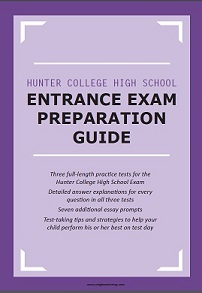GRE Test Prep | Questions and Answers on the GRE
/If you are thinking of moving on to graduate school or business school after college, then test prep for the Graduate Record Examination (GRE) will help you prepare to take the GRE as well as one or more of the GRE Subject Tests (Biochemistry, Cell and Molecular Biology; Biology; Chemistry; Literature in English; Mathematics; Physics; or Psychology) if any of these areas relate to your major. Similar to the SAT and SAT II Subject Tests, the GRE and GRE Subject Tests help quantify your knowledge of specific subjects so that potential graduate and business schools can select the right candidates.
What is the GRE?
The computer-based GRE has three sections: Verbal, Quantitative and Analytical Writing. There's an hour and fifteen minute analytic section with two essays, two half-hour Quantitative sections and two half-hour Verbal sections. You will also face a half-hour experimental section that is either on Mathematical or Verbal Reasoning..
Should I take a GRE Subject Test?
Not all students will take both the GRE and the GRE Subject Tests, but the subject tests do give you an additional way to showcase your skills. If you’re concerned about your ability to perform well on the reading and writing portions of the GRE, a quantitative subject test score may help show your strengths in that area. Conversely, someone who excels in literature and reading comprehension may want to consider the Literature in English subject test as a way to offset weaker math scores. Although the GRE and GRE Subject Tests cover different material, the format is similar. Getting used to the question types on the GRE will make you more comfortable with the subject tests.
The paper-based GRE Subject Tests, given three times a year--in October, November and April-- at test centers worldwide, are offered in these subjects:
- Biochemistry, Cell and Molecular Biology
- Biology
- Chemistry
- Computer Science
- English Literature
- Mathematics
- Physics
- Psychology
What are my GRE test prep options?
There are many GRE test prep options. You could try going it alone. or you could join a group for instruction in a classroom format. While independent study may work for highly motivated students who do not have major time commitments, academic demands, or other requirements that make time to study difficult to come by, it is not the right choice for many students. Studying in a classroom environment with a teacher who specializes in GRE test prep may be helpful, but keep in mind that you will lose individual attention in exchange for a larger social setting.
Should I hire a private GRE tutor?
If the other test prep options do not sound appealing to you, it may be time to consider a private GRE tutor. Over the course of typical GRE test prep, expect your tutor to administer a practice test, so that he or she can pinpoint the areas in which you need extra help improving. The tutor will then work with you on each core section of the GRE, using different techniques for each part. Verbal drills will help with the language requirements of the test, while math practice questions will be more structured and quantitative. Your private GRE tutor will also have specific writing guidelines for you to follow that are directly related to the type of writing that achieves high scores on the GRE. The flexibility and personal attention you can get from a private GRE tutor will help you boost your performance, and you will likely see a big improvement from your diagnostic test.
When should I start GRE Test Prep?
No matter which path you choose, it is usually a good idea to leave three to four months open for studying before the test/s, as this will allow you to review at a reasonable pace and not feel rushed. Cramming the week before a GRE test date will just stress you out and have little impact on your score
Focus on improving your score on all sections of the GRE. These test scores will make up a sizable component of your applications to graduate schools or business schools, it is in your best interest to achieve scores that set you apart from other students. The more studying you can get done now, the easier the GRE will be. Start planning your next academic step and make your study plans now.

